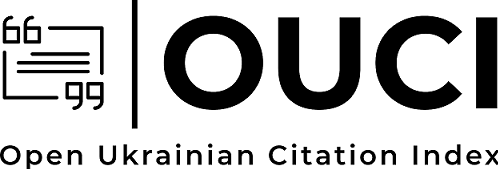THE PROBLEM OF REPATRIATION OF INTERNMENT UPR ARMY IN POLAND (1921–1922)
DOI:
https://doi.org/10.28925/2524-0757.2016.2.18Keywords:
internees, UPR Army, Russian-Ukrainian delegation, repatriation, amnestyAbstract
With the signing in 1921 of the Treaty Peace of Riga between the RSFSR and the USSR on the one hand and the Polish Republic on the other, there was the problem of repatriation of Ukrainian and Russian prisoners of war, refugees and focused on the UPR Army interned. The problem of repatriation of Ukrainian internment in Poland was engaged in Russian-Ukrainian delegation. At first campaign for the return to Ukraine conducted military prisoners of war in those camps where they were interned together with soldiers UPR. So to encourage the mass repatriation it was necessary official Soviet amnesty, that was emphasized by the Russian-Ukrainian delegation in its letters to NKZS RSFSR and the Ukrainian SSR. The Agreement on repatriation was not scheduled to return to Ukraine and Russia still operating with Poland allied military groups of S. Petliura and others. Soviet authorities until autumn 1921 had not made specific tactics on internment. One thing was undeniable — it was no doubt a need for liquidation camps that allowed maintain combat-ready anti-Bolshevik military groups. A compromise was interned repatriation condition based on “Dabski — Joffe” treatment. The development of instructions for carrying out the repatriation engaged specially created for this purpose committee of Mixed Soviet-Polish Comission. The Polish delegation undertook to provide this subcommittee relevant information on the location of the internees and their quantitative composition. In internment camps should be directed subcommittee authorized to identify those who wished to return home. It was assumed that those who agreed to repatriate, were separated from the rest of the mass internment and confirmed their decision in writing. Russian-Ukrainian delegation also stressed that the combat training of the Ukrainian and Russian forces played an important role in attitude Polish military authorities towards them. The Polish government was interested in preserving Ukrainian units. Also an important role in the process of failed repatriation played anti-repatriation activities of the Ukrainian command. It was an appeal of the Chief Ataman to soldiers. It should be noted that the command staff was opposed to repatriation. So hard the combination of these factors greatly hampered mass repatriation of military UPR Army.
Downloads
References
Pavlenko M.I. Ukrayinski viyskovopoloneni i internovani u taborakh Polshchi, Chekhoslovachchyni ta Rumunii: stavlennia vlady i umovy perebuvannia (1919–1924 rr.) / M.I. Pavlenko. — K., 1999. — 352 s.
Sribniak I.V. Obezzbroiena, ale neskorena: Internovana Armiia UNR u taborakh Polshchi i Rumunii (1921–1924 rr.) / I.V. Sribniak. — Kyiv — Filiadelfi ia, 1997. — 187 s.
Tsentralnyi derzhavnyi arkhiv vyshchykh orhaniv vlady ta upravlinnia Ukrainy (dali — TsDAVO Ukrayiny). — F. 4. — Op. 1. — Spr. 15. — 343 ark.
TsDAVO Ukrayiny. — F. 4. — Op. 1. — Spr. 823. — 268 ark.
TsDAVO Ukrayiny. — F. 4. — Op. 1. — Spr. 825. — 346 ark.
TsDAVO Ukrayiny. — F. 4. — Op. 1. — Spr. 826. — 402 ark.
TsDAVO Ukrayiny. — F. 1075. — Op. 2. — Spr. 474. — 274 ark.
Published
How to Cite
Issue
Section
License
Copyright (c) 2016 Kyiv Historical Studies

This work is licensed under a Creative Commons Attribution-NonCommercial-ShareAlike 4.0 International License.
Authors who publish in this journal retain the right of authorship of the work and give to the journal right of first publication of this work under the conditions of Creative Commons: Attribution-NonCommercial-ShareAlike 4.0 International (CC BY-NC-SA 4.0), which allows others freely distribute the work published with reference to the authors of the original work and the first publication of this magazine.














